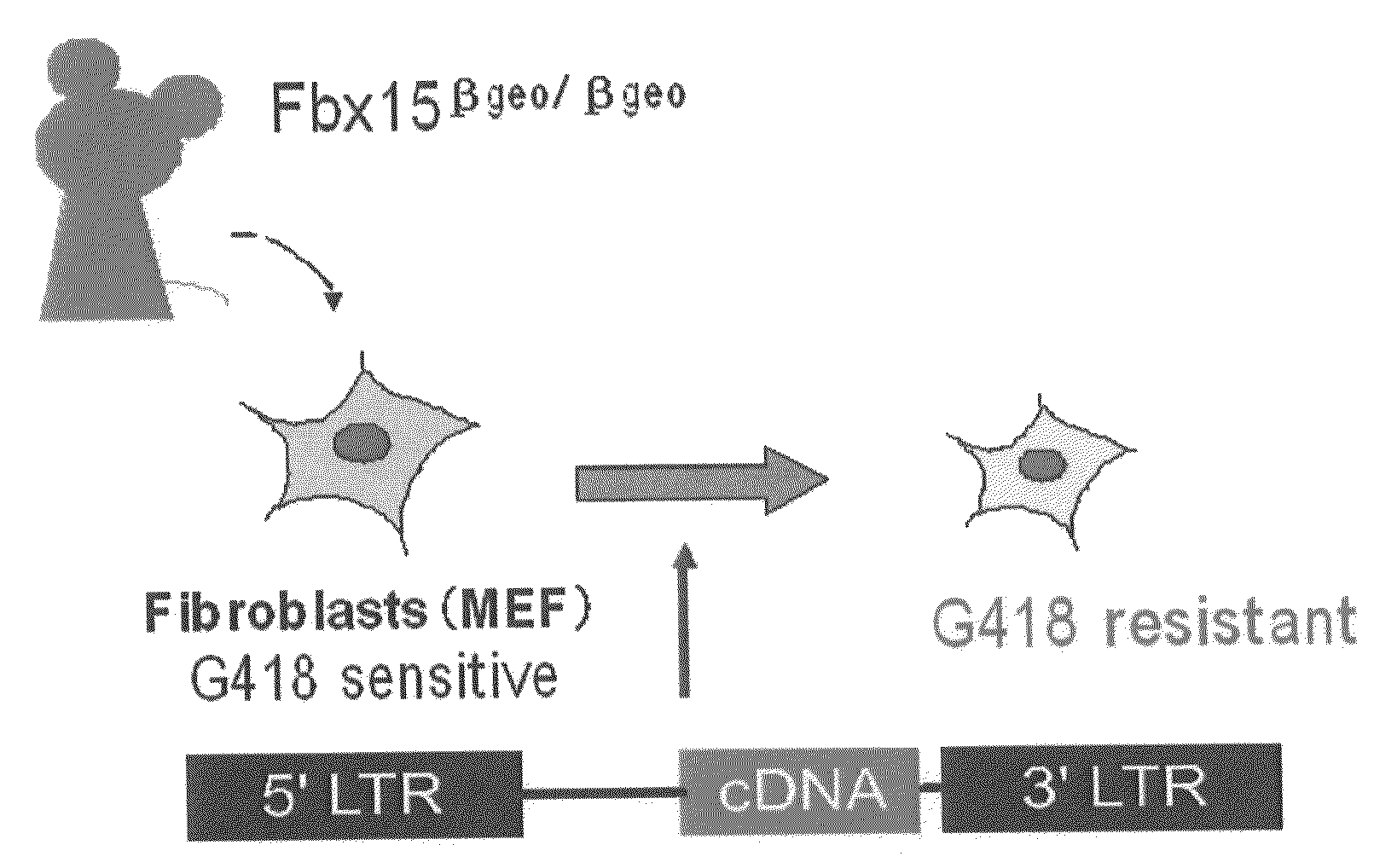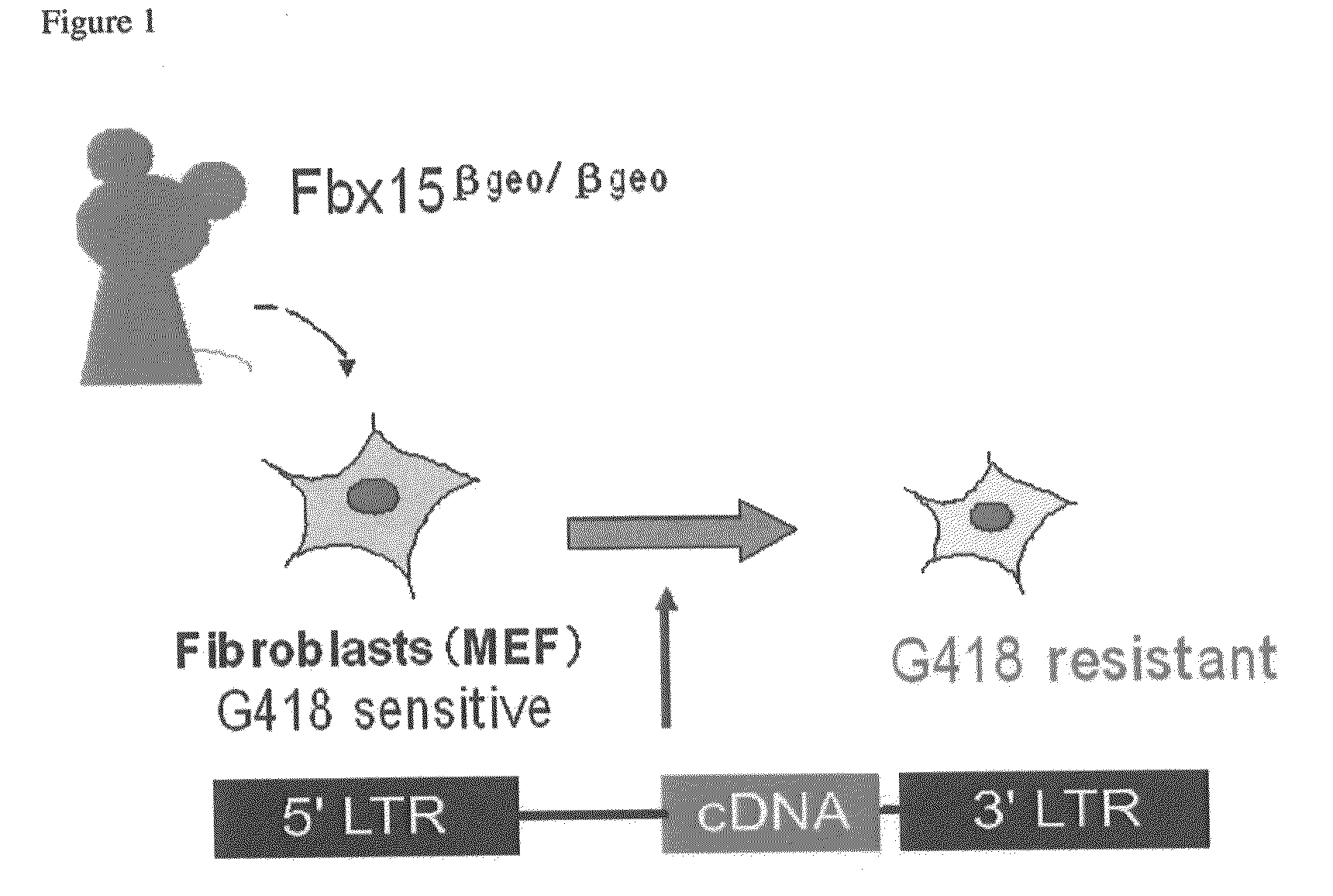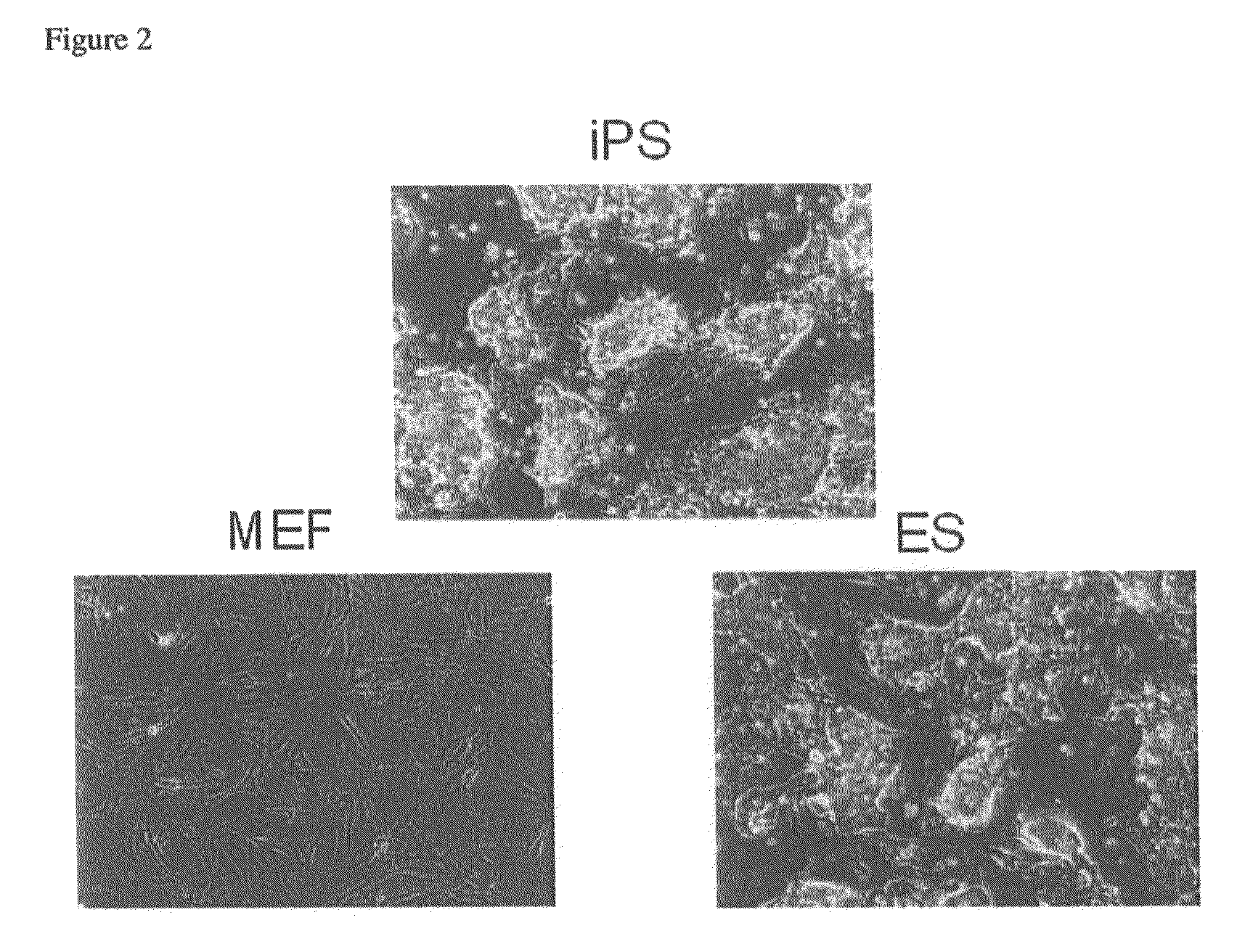Nuclear reprogramming factor and induced pluripotent stem cells
a technology of nuclear reprogramming factor and which is applied in the direction of peptides, drug compositions, genetically modified cells, etc., can solve the problems of human embryo use, ethical controversies, and hinder the application of human es cells, so as to achieve efficient isolation, differentiation and proliferation abilities of isolated induced pluripotent stem cells
- Summary
- Abstract
- Description
- Claims
- Application Information
AI Technical Summary
Benefits of technology
Problems solved by technology
Method used
Image
Examples
example 1
Selection of A Nuclear Reprogramming Factor
[0143]In order to identify reprogramming factors, an experimental system for easy observation of the reprogramming phenomenon is required. As an experimental system, a mouse in which βgeo (a fusion gene of β-galactosidase gene and neomycin resistance gene) was knocked into the Fbx15 locus (Tokuzawa et al., Mol. Cell. Biol. 23:2699-708, 2003) was used. The mouse Fbx15 gene is a gene specifically expressed in differentiation pluripotent cells such as ES cells and early embryos. However, in a homomutant mouse in which βgeo was knocked into the mouse Fbx15 gene so as to delete the function of Fbx15, no abnormal phenotypes including those concerning differentiation pluripotency or development were observed. In this mouse, expression control of βgeo is attained by the enhancer and promoter of the Fbx15 gene. Specifically, βgeo is not expressed in differentiated somatic cells, and they have sensitivity to G418. In contrast, the βgeo knockin homomu...
example 2
Induction of Reprogramming with a Combination of 4 Kinds of Genes
[0149]It was examined whether or not induction of reprogramming of somatic cells was achievable with the four kinds of genes of which particular importance was suggested among the 10 genes. By using the combination of the aforementioned 10 kinds of genes, the combination of the aforementioned 4 kinds of genes, combinations of only 3 kinds of genes among the 4 kinds of genes, and combinations of only 2 kinds of genes among the 4 kinds of genes, these sets of genes were retrovirally transduced into the MEF cells as somatic cells in which βgeo was knocked into the Fbx15 gene. As a result, when the 4 kinds of genes were transduced, 160 G418-resistant colonies were obtained. Although this result was almost the same as that obtained by the transduction with the 10 kinds of genes (179 colonies), the colonies obtained by the 4-gene transduction were smaller than those by the 10-gene transduction. When these colonies were passa...
example 3
Analysis of Pluripotency of Reprogrammed Cells
[0154]In order to evaluate the differentiation pluripotency of the established iPS cells, the iPS cells established with 24 factors, 10 factors, and 4 factors were subcutaneously transplanted into nude mice. As a result, tumors having a size similar to that observed with ES cells were formed in all animals. Histologically, the tumors consisted of a plurality of kinds of cells, and cartilaginous tissues, nervous tissues, muscular tissues, fat tissues, and intestinal tract-like tissues were observed (FIG. 8), which verified pluripotency of the iPS cells. In contrast, although tumors were formed when the cells established with the 3 factors were transplanted into nude mice, they were formed histologically only from undifferentiated cells. These results suggested that a Sox family gene was essential for the induction of differentiation pluripotency.
PUM
| Property | Measurement | Unit |
|---|---|---|
| concentration | aaaaa | aaaaa |
| pore-size | aaaaa | aaaaa |
| pore-size | aaaaa | aaaaa |
Abstract
Description
Claims
Application Information
 Login to View More
Login to View More - R&D
- Intellectual Property
- Life Sciences
- Materials
- Tech Scout
- Unparalleled Data Quality
- Higher Quality Content
- 60% Fewer Hallucinations
Browse by: Latest US Patents, China's latest patents, Technical Efficacy Thesaurus, Application Domain, Technology Topic, Popular Technical Reports.
© 2025 PatSnap. All rights reserved.Legal|Privacy policy|Modern Slavery Act Transparency Statement|Sitemap|About US| Contact US: help@patsnap.com



